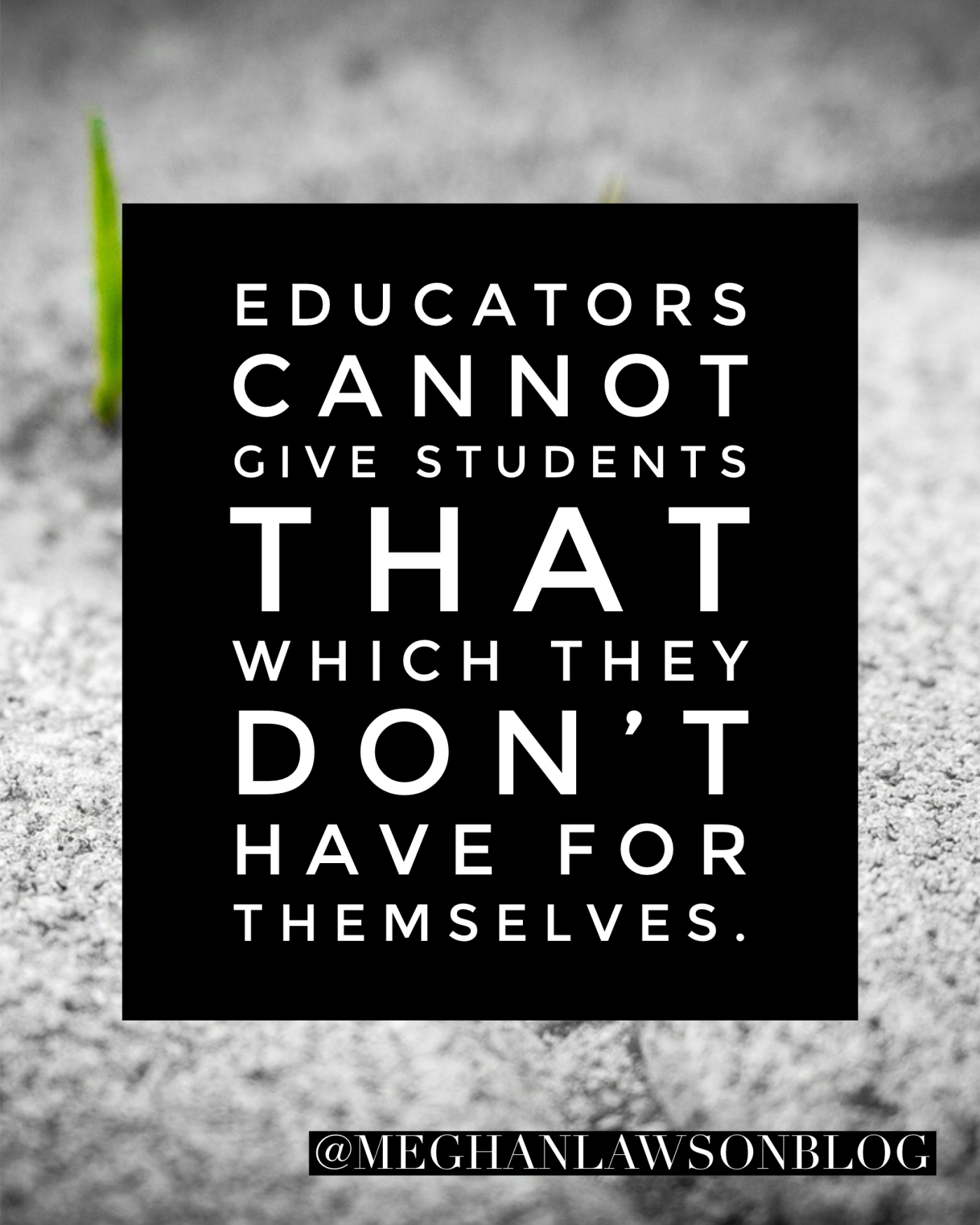I was meeting with a teacher this week, and he was posing some very thought-provoking questions. Questions such as, “In our efforts to become laser-focused on state standards, does our instruction on those standards inspire curiosity or detract from it?” He went on to explain that if our students are asked to write a paper about a specific prompt related to Hamlet without plagiarizing, what is the likelihood that they can write a paper that hasn’t been written in a very similar fashion previously? Our student’s knowledge that similar papers have already been written may lower some of their interest in writing their own original paper.
Perhaps this is why I enjoy blogging so much. While I’m certain blog posts with similar thoughts and sentiments have been written countless times, I am free to write about topics of my choosing and in my own style. I can write until I feel I have sufficiently expressed my ideas without worrying about how many paragraphs were expected or about how long the blog post was supposed to be. Granted, this is something I choose for myself that isn’t part of my daily work, so I have a lot of creative freedom. This allows me feel playful in my approach to this little happy place I’ve created for myself online. That last word – online. As an adult, I share my writing with others versus sharing my writing with one person who asked me to write a blog post answering a specific question about a specific topic and for a grade.
I love what Catlin Tucker says in her most recent book, Shift Writing into the Classroom, written with Katie Novak, “ChatGPT will only kill the student essay and authentic writing if we continue to send inauthentic writing tasks home with students.” We use words like authentic and relevant in the education space quite a bit. I think we often assume that we mean the same thing when we say these words. Why wouldn’t we? These words seem pretty standard, but I think clarity here is important. According to Oxford Languages, one definition for inauthentic is “lacking full reality or sincerity.”
Sincerity. I love thinking about what sincerity looks like when we think about student learning tasks in the classroom.
Which leads me to start asking questions of us as adults working in schools. As Katie Martin says, “Teachers create what they experience,” how many of us have opportunities to play and create and get curious and be deeply sincere in our work? I would venture to say that if we’ve had these opportunities, many of us have created them for ourselves.
While I believe that what Jean Piaget said is true that “Play is the work of the child,” I also think play is the work of all of us. Is there room for curiosity and sincerity during collaboration meetings, staff meetings, and on professional learning days? Is there space for play which often leads to curiosity which can lead to sincere efforts to create and experiment and learn?
Now, as my friend, Angela Faulhaber reminded us this week during ELA Course of Study, all choice can mean no choice at all. If I tell students they can write about anything and simply wait for them to write about anything without giving them a funnel for their thinking or stimulus from a mentor text or without list making together and some of the other strategies we use with students, we may find them buried under the pressure of the blank page, paralyzed by the overwhelming sea of endless possibilities. So, I’m not saying we throw away expectations or standards and cohesion. What I’m asking is for us to nourish choice, art, play, curiosity, and sincerity by being playful in the way we design learning experiences for the adults in our schools. Firm with the frame for the work and clear about the essential outcomes and then trust and inspire and support in our journey to get there. Let’s honor the individual brilliance of every professional and collective brilliance of every team. Allow them space to think without doing all the thinking for them. Allow them to tinker, try, and create without doing all the doing for them.
Because none of us is smarter than all of us. – Ken Blanchard
Dr. Edward Deming once said something along the lines of this: 94% of failures are due to the system. Not the worker.
And somewhere along the way, we created a system that expects educators to give to students that which they don’t have for themselves.
If you want to inspire meaningful learning for students, inspire meaningful learning for staff.
Sincere classroom learning begins with a sincere and consistent effort to trust and inspire the educators who work hard every day to make a meaningful impact on students.
When we take good care of adults and their learning in schools, it allows them to take great care of kids and their learning. – Legacy of Learning

Leave a comment